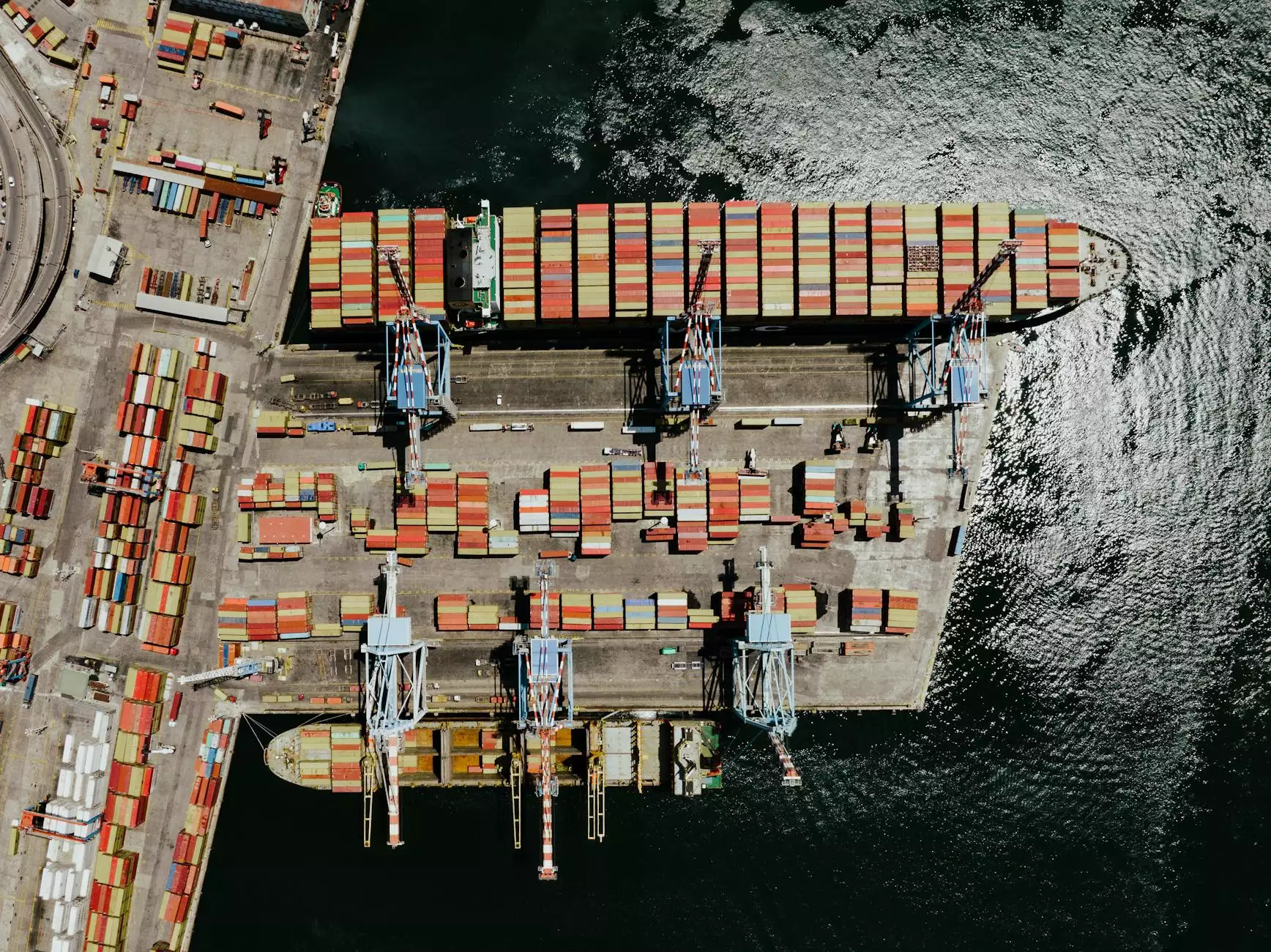Understanding the Importance of Transload Containers in Today's Business Environment

In the rapidly evolving world of logistics and transportation, transload containers have become more than just a shipping option; they are a vital component of efficient supply chain management. Businesses striving for excellence in shipping and transportation can leverage the power of transload containers to improve their operations and boost their bottom line. Below, we delve into the various aspects of transloading and its implications for modern businesses.
What is a Transload Container?
A transload container is a specialized shipping container that facilitates the transfer of cargo between different modes of transportation—such as from trucks to trains or vice versa. This strategy is essential for optimizing logistics and ensuring goods are transported efficiently and cost-effectively. By using transload containers, companies can enjoy numerous advantages that enhance their operational capabilities.
Benefits of Transload Containers
1. Cost Efficiency
Utilizing transload containers can significantly reduce shipping costs for businesses by minimizing the distance cargo has to travel to reach its destination. By leveraging intermodal transportation, companies can choose the most economical modes of transport available, often resulting in substantial savings. Here are a few ways transloading can improve cost efficiency:
- Reduced Fuel Costs: By using larger freight services, businesses can optimize fuel consumption.
- Lower Terminal Fees: Transloading at strategically located terminals can minimize unloading fees.
- Consolidated Shipments: Combining shipments into one can decrease overall freight expenses.
2. Increased Flexibility
In an industry where agility is key, flexibility is vital. Transload containers offer businesses the ability to adapt swiftly to changing market demands. This adaptability arises from several factors:
- Multiple Transport Options: Companies can switch between different modes of transport based on pricing and availability.
- Scalability: Businesses can easily scale operations up or down depending on shipment volume.
- Regional Access: Transloading allows better access to regional markets, facilitating quicker deliveries.
3. Enhanced Speed of Delivery
A key advantage of transloading is the speed at which goods can be moved. By using strategically placed transload facilities, companies can expedite the shipping process:
- Reducing Transportation Times: This minimizes the time cargo spends in transit.
- Streamlined Transfers: Efficient systems reduce waiting time during loading and unloading processes.
- Immediate Availability: Quickly deploying inventory to various distribution points improves customer satisfaction.
The Role of Transload Containers in Supply Chain Optimization
Transloading is a critical component in the quest for an optimized supply chain. By effectively integrating transload containers into logistics strategies, businesses can maintain a competitive edge. Key areas of optimization include:
1. Improved Inventory Management
With transloading capabilities, businesses gain visibility into their inventory. By managing stock levels across different transportation modes, companies can improve their ordering processes:
- Just-In-Time Delivery: Transloading facilities help ensure that materials arrive precisely when needed, reducing excess inventory.
- Real-Time Tracking: Advanced tracking systems provide up-to-date data on cargo status.
2. Risk Mitigation
Businesses face numerous risks in shipping, from delays to cargo damage. Transload containers minimize some of these risks:
- Less Handling of Goods: Fewer transfers generally mean less chance of damage.
- Strategically Located Facilities: These can help businesses avoid supply chain disruptions caused by natural disasters or political events.
Industries Benefiting From Transload Containers
Nearly every sector can benefit from using transload containers. However, some industries are particularly reliant on transloading operations:
1. Retail
The retail industry relies heavily on timely deliveries. Transloading enables retailers to streamline their supply chains and maintain optimal stock levels, ensuring products are available when customers want them.
2. Manufacturing
Manufacturers often deal with large volumes of raw materials that need to be transported swiftly. Transloading helps in moving these materials from port to plant, improving production timelines and reducing bottlenecks.
3. Agriculture
The agricultural sector can capitalize on transloading to move seasonal crops from rural areas to urban markets efficiently. This ensures freshness while optimizing transport costs.
4. Energy
Energy companies utilize transloading to transport equipment and resources across vast distances, often using specialized containers to ensure safety and compliance with regulations.
Implementing Transload Solutions in Your Business
For businesses considering transloading as a logistics strategy, the implementation process can be broken down into several critical steps:
1. Assess Your Supply Chain Needs
Evaluate your current shipping operations. Determine where transloading can enhance efficiency and reduce costs. Perform a cost-benefit analysis to understand the potential savings.
2. Choose the Right Partners
Finding reliable transloading service providers is crucial. Look for companies with a proven track record, modern facilities, and advanced technology for tracking shipments.
3. Invest in Technology
Implement systems that allow real-time tracking of shipments. This can improve transparency and enhance decision-making processes.
4. Monitor and Optimize
Regularly review transloading operations to identify inefficiencies or areas for improvement. Be prepared to adjust your strategies as market conditions change.
Conclusion
As businesses face increasing consumer demands and competitive pressures, leveraging transload containers offers a pathway to improved efficiency, cost savings, and enhanced supply chain flexibility. By adopting transloading as a core logistics strategy, companies position themselves for success in an ever-evolving marketplace. To stay ahead, it's vital to stay informed about the latest trends and technologies in the transloading arena and integrate these into your business strategy.
For more information on transloading and how it can benefit your logistics operations, visit shipnorthamerica.com.









